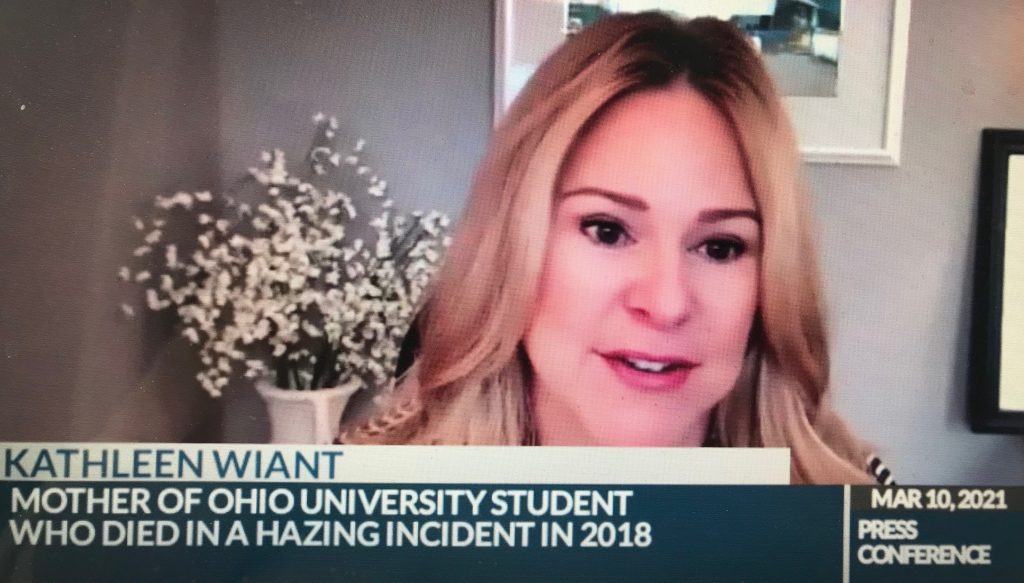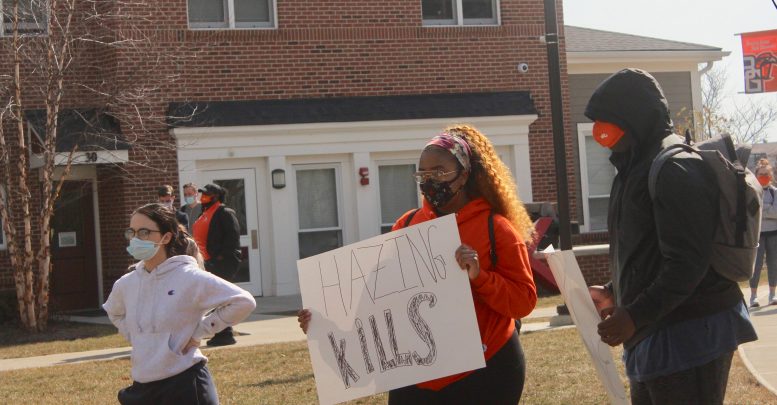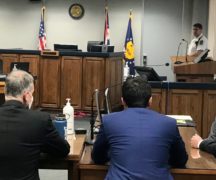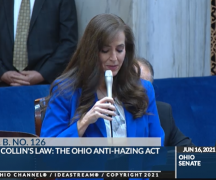By DAVID DUPONT
BG Independent News
The death of Bowling Green State University student Stone Foltz is giving added impetus to a move in the Ohio State Legislature to increase the penalties for hazing.
On Thursday (March 4), Bowling Green police were called to the 20-year-old business student’s off campus apartment by his roommates. Foltz, who had been dropped off at the apartment shortly before, was unresponsive because of alcohol poisoning. He died on Sunday after being on life support and his organs were donated.
Hazing is alleged. The fraternity Pi Kappa Alpha has been suspended by BGSU, and BG police are investigating the death.
On Wednesday morning, two state senators, Stephanie Kunze, R-Hilliard, and Theresa Gavarone, R-Bowling Green, held a virtual press conference to announce the introduction of a new version of Collin’s Law.
The law would make hazing that results in death and a serious injury a felony as well as including requirements for education for incoming students, including graduate and transfer students, about hazing and for a system by which people can check the records of campus organizations.
The bill picks up for House Bill 310 (co-sponsored by Haraz Ghanbari, R-Perrysburg) that passed the Ohio House last year, but stalled out in the Senate Education Committee.
That bill, however, also included provisions related to bullying in K-12 schools.
The legislation is named for Collin Wiant, an Ohio University student who died from hazing in 2018.

Only after his death, his mother, Kathleen Wiant, said Wednesday did they learn the extent of his abuse, which included water boarding, being struck with a belt, and forced to take drugs.
After his death and learning the lax penalties for hazing, she and her family committed themselves to changing the law.
“This bill is about changing a culture where hazing is accepted and even expected,” she said. “This bill is about saving lives.”
Foltz’s death, Wiant said, “further underscores the need of getting this bill passed and not having it stalled as it did last November.”
Gavarone said the news of Foltz’s death “really shook me to the core.” She had heard the testimony previously about hazing. Now this incident hit close to home – she’s a graduate of BGSU, and her son attends the university and is the same age as Foltz.
The death “emphasizes the need to change the culture on college campuses,” she said. The problem is not only fraternities but also other groups.
Wiant said that 1.5 million high school students are hazed, and 55 percent of college students in clubs, organizations, and teams are hazed, yet only 5 percent report it.
“What about all the hazing that doesn’t make the news?” she wondered. Deaths make headlines. Other victims are traumatized, hospitalized, depressed, suicidal or suffer from PTSD. “What about… the kids who will never be the same because of hazing?”
Keller Blackburn, Athens County prosecutor, said that current law is insufficient to address the problem. Hazing is a fourth degree misdemeanor. Prosecutors need to be able to compel witnesses to testify before a grand jury.
The problem is shrouded in silence. If someone reports it, they are hazed more. Part of the problem, he said, is people who are hazed, then get older and haze others.
Wiant said she and Kunze have been working to tighten up Collins Law, since last session.
The major change is the legislation only addresses hazing. The K-12 bullying provisions have been removed.
Kunze said that the complexity of the bill, sponsored by former State Rep. Dave Greenspan, covering both hazing and bullying, from kindergarten through higher education, contributed to its getting bogged down.
The pandemic also caused delays in consideration, she said.
The new version of the law tightens the provisions for the educational pieces to make sure colleges and universities are using the best practices in educating students about hazing.
The aim, Kunze said, is inform students about the dangers of “this embedded, sickening tradition that no one wants to talk about.”
She added: “We want students themselves to also embrace this mindset of change because we know that will help drive the change in the culture.”





